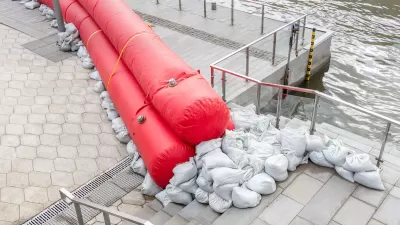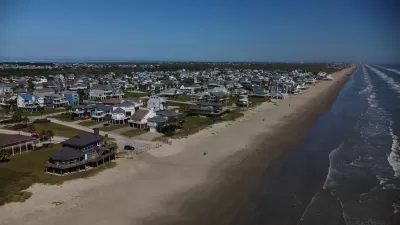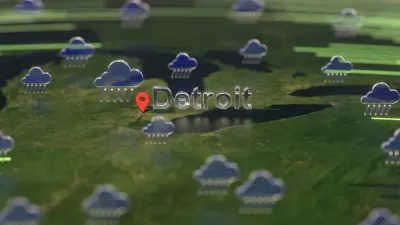The 4th National Climate Assessment brought the reality of climate change to the regional and local level. The Carolinas provide a particularly poignant case study.

Charles Duncan and Abbie Bennett provide regional details of the effects of climate change for the Carolinas, as predicted by the 4th National Climate Assessment, released by the federal government over the Thanksgiving holiday weekend.
"Climate change will cause more heat waves, flooding and worse storm impacts, and change life for people in the Carolinas," according to the article. "Higher sea levels will bring more and worse coastal flooding, a warming ocean will bring stronger storms, and extreme heat waves will become longer and more frequent in the Southeast," more specifically.
As detailed by the article, the recent history of the Carolinas and the rest of the Southeast is one of a changing climate, with recording flooding caused by hurricanes Matthew and Florence, records for costs incurred by weather events, and record tides just last week in Charleston.
The article stops short, however, of connecting the dots between the predictions of the report and any of the policies in place in southeastern states to mitigate the causes or the effects of climate change.North Carolina in particular has provided a compelling example of a state adjusting its approach to climate change in recent years, with mixed results from an environmental perspective in a period of rapid growth.
For more regional assessment of the predictions included in the 4th National Climate Assessment, see an article by Grist also shared on Planetizen recently.
FULL STORY: White House: 1,500% jump in coastal flooding, unprecedented heat waves for Carolinas

Maui's Vacation Rental Debate Turns Ugly
Verbal attacks, misinformation campaigns and fistfights plague a high-stakes debate to convert thousands of vacation rentals into long-term housing.

Planetizen Federal Action Tracker
A weekly monitor of how Trump’s orders and actions are impacting planners and planning in America.

In Urban Planning, AI Prompting Could be the New Design Thinking
Creativity has long been key to great urban design. What if we see AI as our new creative partner?

King County Supportive Housing Program Offers Hope for Unhoused Residents
The county is taking a ‘Housing First’ approach that prioritizes getting people into housing, then offering wraparound supportive services.

Researchers Use AI to Get Clearer Picture of US Housing
Analysts are using artificial intelligence to supercharge their research by allowing them to comb through data faster. Though these AI tools can be error prone, they save time and housing researchers are optimistic about the future.

Making Shared Micromobility More Inclusive
Cities and shared mobility system operators can do more to include people with disabilities in planning and operations, per a new report.
Urban Design for Planners 1: Software Tools
This six-course series explores essential urban design concepts using open source software and equips planners with the tools they need to participate fully in the urban design process.
Planning for Universal Design
Learn the tools for implementing Universal Design in planning regulations.
planning NEXT
Appalachian Highlands Housing Partners
Mpact (founded as Rail~Volution)
City of Camden Redevelopment Agency
City of Astoria
City of Portland
City of Laramie





























